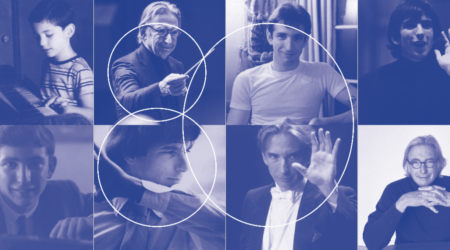Travel, Lit Up
By Tatiana Sundeyeva There’s more to travel than jet lag and fanny packs. A truly unforgettable journey requires an emotional connection to the place and a sense of curiosity. Enter literature. Since you’re likely to bring a book (or magazine) with you anyway, if only to kill time during a long flight, why not choose […]
By Tatiana Sundeyeva
There’s more to travel than jet lag and fanny packs. A truly unforgettable journey requires an emotional connection to the place and a sense of curiosity. Enter literature. Since you’re likely to bring a book (or magazine) with you anyway, if only to kill time during a long flight, why not choose something with literary value rather than whatever lusty romance novel is on sale at the grocery store? The right book could add unexpected depth and change your excursion from “trip” to “experience.”
Traveling without context is like music without pitch: boring. Every landmark seems like just another building and sightseeing becomes monotonous. For example, the University of Bologna suddenly appears to be much more interesting after you learn that Dante was an alumnus. But who, with the exception of some of us history geeks, is going to voluntarily pick up a history book before heading off on their trip? The most obvious way to get context is to pick up a book that takes place in the city or country to which you’re traveling. For example, Paris on its own is beautiful. Paris after reading The Hunchback of Notre Dame is now also thrilling, dark, heartbreaking. What street served as the backdrop to Esmeralda’s enchanting dance? Looking up at the facade of the Cathedral of Notre Dame you imagine where Quasimodo might have rung the church bells. The feelings that you experienced while reading the book are now associated with the place to which you’ve traveled. Your view of the city becomes more whole, your interaction with the location transforms into a personal one, and the place comes to life with character and meaning.

Sometimes, even unrelated pairings can bring about unexpectedly successful results. I recently traveled to my birthplace in the former Soviet Union. In theory, I should have been reading Everything is Illuminated about a young American Jew who goes to Ukraine but I decided to try something different and instead brought The Grapes of Wrath. What’s more American than that? But as I progressed in my book and my trip, I began to see similarities between the protagonists and the people I was meeting. The superficial details were all different, of course, but the problems that these people face remained the same because unhappiness is universal. Like the characters in Steinbeck’s masterpiece, just about everyone from friends to manicurists and taxi drivers expressed the pain of living in a country that doesn’t care about the survival of its inhabitants, the betrayal of feeling like personae non gratae: in the novel, for being “Okies”; in Moldova, for being of Russian descent, and the suffocation of uncompromising poverty. With Steinbeck’s help, I understood the motivations and internal crises not only of the Joad family, but also of the many people that I met on my trip. And, are you ready for another analogy? A city without people is like an éclair without filling: unsatisfying. My experience became all the richer because I didn’t only photograph the statues and grapevines, I gained invaluable insight into the people that make the city’s heart beat.
I never stop planning (ok, fantasizing) about the next place I want to discover for myself and even in this aspect literature has been helpful. By reading The Brothers Karamazov abroad and discussing it with locals, I had the ability to see my native culture through the eyes of the people of that country and the result was a renewed sense of pride and curiosity in the Russian culture and a desire to travel to Russia, a country I had previously written off. Reading The Search for Lost Time made me curious to visit the locations in Paris that inspired Proust and had me wandering areas of the city that I wouldn’t otherwise have visited (and feeling like I deserved a posthumous restraining order). And I’m not the only one who is inspired to travel by the words of great authors. Gabriel Garcia Marquez traveled to the American South to see the land that inspired Faulkner. Crowds of tourists throng to North Beach to see where the Beat Generation penned their disenchantment. I’d like to see “The Thundering Stallion of Sicily” at Safeway do that.
Tatiana Sundeyeva enjoys travel, literature, puns, and anything with an unhealthy sugar content. And not necessarily in that order. She is a graduate of UC Berkeley where she got a degree in English with a minor in Italian.





